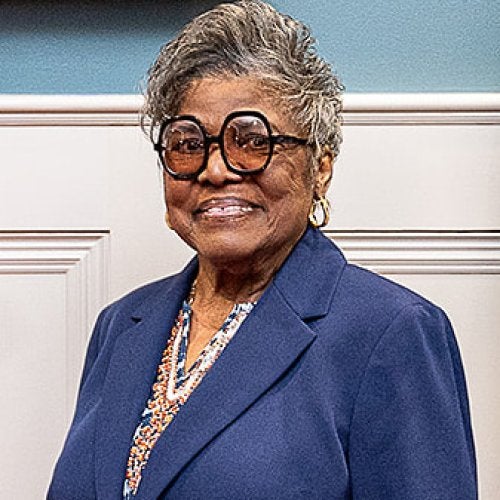
By Joshua Lavender
As the work of our scholars demonstrates, innovation, collaboration, and social justice are foremost among the values to which the College of Education has committed itself. We plan and pursue research with these values always in mind. In future issues of this e-newsletter, we will shine a light on compelling faculty research projects with brief profiles of their goals, methods, and outcomes to date. At present, we provide you an overview of how the College's core values relate to our work.
Preparing teachers is of course a primary goal of the College of Education. Our nationally lauded teacher preparation programs train future educators through both rigorous coursework and internships in Maryland schools. Our researchers are pushing at the boundaries of innovation in curriculum and assessment. And we are deeply involved in collaborations with local communities and school districts to meet their unique needsfrom the creation of cutting-edge degree programs, such as our hybrid baccalaureate in Early Childhood and Special Education, to forward-looking schools, such as the College Park Academy, a new charter for Prince George's County students.
Collaboration is in fact integral to the College, as our research on language and literacy especially illustrates. Our Language Development and Parenting Lab works with the Infant and Child Studies Consortiuma campus-wide research networkto examine the role of early experiences in childrens linguistic development. Locally, our researchers are helping schools develop vocabulary and reading comprehension programs for English Language Learners as well as pedagogical training for their teachers. Another focus of research that calls for collaboration and aims for broad social impact concerns incarcerated adolescents literacy, which profoundly affects all other aspects of their education.
The education landscape is quickly evolving with the growth of "big data" latitudinal assessments of performance at grade level and longitudinal studies of success from preschool to the workforce. The College is committed to leveraging the most current data to transform education. In addition to our strides in the methodologies of working with data, we foster local, statewide, and national collaborations to collect and interpret data meaningfully. These collaborations empower teachers and parents with meaningful perspectives on educational practice and provide lawmakers with sound, implementable policy solutions.
Our researchers also embrace technologys role in education. We are developing integration to tap into learning potentials through teaching tools that appeal to children and teenagers, and we are harnessing social media and interactive environments to immerse students in richer learning experiences. But this research serves teachers as well as students. Innovative mechanisms for assessment allow teachers to get clearer pictures of the effectiveness of their teaching methods and of opportunities for students to improve. Groundbreaking platforms for pedagogical experimentation let teachers simulate interactions with students in order to explore avenues for better instructional practice, dramatically amplifying their impact in real classrooms. Our faculty with joint appointments in the College of Information Studies are developing information-rich environments, such as massive open online courses (MOOCs) and other virtual classes. With these promising ventures, the College is engaging vibrantly with technologys profound, transformative effect on how we teach and learn.
Ideals of equity, diversity, and opportunity underpin much of the Colleges work. Dedicated to pursuing social justice, our faculty, students, and alumni are agents of change in their fields. The importance and meaning of social justice research comes to light through their efforts in a variety of contexts: minority and gendered outcomes in STEM education, the emergence of racial attitudes in children, how family economics affects childrens vocabularies and early grasp of numbers, the effects of affirmative action, and the interrelation between urban school reform and achievement gaps, to name just a few. Our research aims to create instructional practice and informed public policy that promotes equal access and opportunity for all children.
The College's work extends well beyond our national borders. We believe the values that come to light in our visioncollaboration, innovation, and social justiceare worthwhile human values, promises to be kept around the world. So we seek out opportunities to make global impacts, to enrich life and expand the horizons of learning for people everywhere. Several of our faculty's projects strive for not only intriguing research but courageous humanitarian goalsa few include overcoming barriers to women's education in sub-Saharan Africa, nurturing refugee schools in Malaysia, and placing Romanian orphans with families. This work exemplifies not only the values of the College of Education but our aim to have a meaningful role in the human story.



